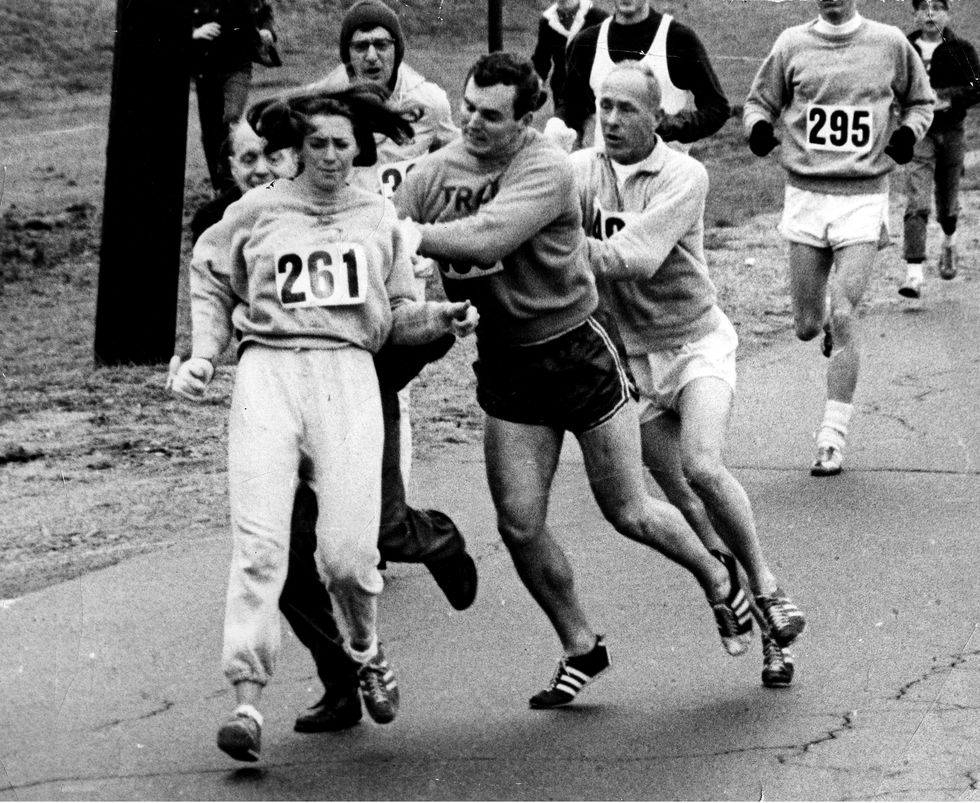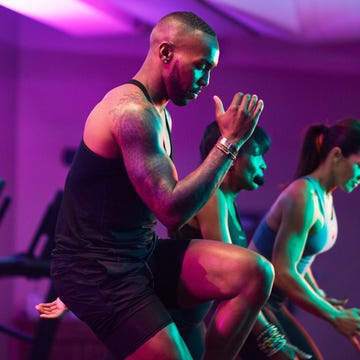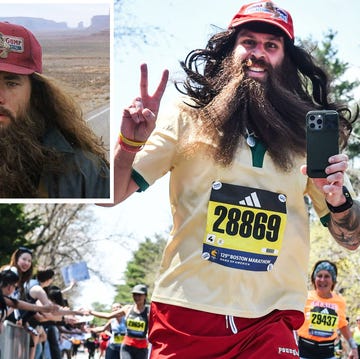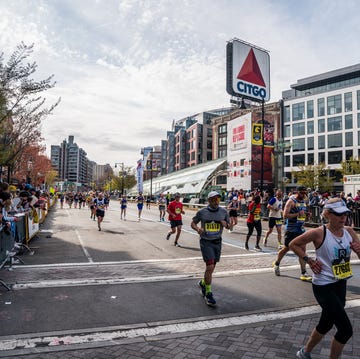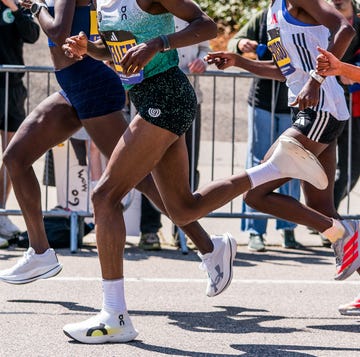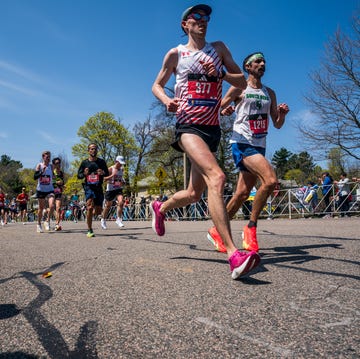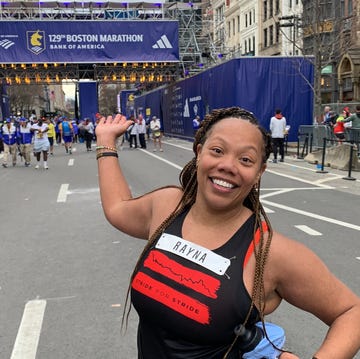Fifty years ago, a spry 20-year-old brunette stepped onto the Boston Marathon course for the first time, like “a pilgrim going to a shrine.” She had no grand plans that day, she just wanted to run the storied marathon.
This year, Kathrine Switzer, now 70, will line up again to run Boston, but the scene will be much different. She will be surrounded by some 14,000 sisters in the sport, making up nearly half the field, instead of having to sneak to the start line.
She’s entered under her full name, rather than using her initials “K.V.” as she did in 1967. And she can run with the confidence that no one will try to stop her in her tracks just because she is a female, as race director Jock Semple did half a century ago.
One thing, though, will remain the same. Her bib number—the very one Semple tried to rip off her chest as he attempted to eject her from the race—will be 261 again.
Back in that first Boston, Switzer had made it four miles before Semple tried to physically pull her off the course. “He claimed the race was 'men’s only' and that I was not allowed to run,” she said. “He was very angry that I had obtained a number and he lost his temper.”
Switzer’s coach, Arnie Briggs, and boyfriend at the time, Tom Miller, were running alongside her, and quickly ran interference. Switzer continued on and finished in 4:20, becoming the first woman to do so with a bib number.
PODCAST: Subscribe to The Runner’s World Show to hear an exclusive interview with Kathrine Switzer on April 13.
“For a while after Semple intervened I was worried and nervous and had lost a lot of energy,” she said. “But it slowly returned and by the end, I was feeling pretty good. I was determined to finish.”
It wasn’t until later that evening, on the five-hour drive back to her school, Syracuse University, did Switzer get an inkling of the stir she had caused. “We stopped for coffee and saw the newspapers—my story was everywhere,” she said. “In my heart, I knew the marathon had changed me and that the incident on the course had radicalized me sufficiently to want to make changes in the sport for women.”
We may earn commission from links on this page, but we only recommend products we back.
RELATED: First Lady of Boston, the story of Roberta Gibb
On an athletic level, Switzer was just getting started in Boston. She went on to win the New York City Marathon in 1974, and ran a PR of 2:51 at Boston in 1975, which ranked her sixth in the world.
Boston launched her running career and also lit a spark in Switzer to advocate for women’s rights in sports. In 1977, she created the Avon International Running Circuit, a global series of women’s races that eventually grew to 400 races in 27 countries.
With the series’ success under her belt, Switzer took her lobbying efforts to the Olympics, successfully helping secure the first women’s marathon at the 1984 Los Angeles games.
“The women’s Olympic marathon opened the door for many other women’s events and helped increase the number of female participants in all sports,” she said. “Most importantly, it inspired people around the world to embrace healthy and productive running lifestyles.”
This type of result is at the heart of Switzer’s years of advocacy. “Running and sports in general is transformational,” she said. “When a woman feels her own strength, it’s empowering. She believes in herself and knows she can do more. It changes everything.”
RELATED: Who Was That Guy Who Attacked Kathrine Switzer 50 Years Ago?
As she prepares to run Boston again this year, Switzer continues to combine sport and advocacy. Her latest project, 261 Fearless (so named after her original bib number), brings active women together through a global supportive social running community. Involving running clubs, non-competitive events, a website and an all-women’s forum, Switzer’s aim is to reach women from all walks of life in all parts of the world.
She’s bringing 100 women—and seven men—with her to Boston, all part of a fundraising effort for the project. “Most women in the world still live in a fearful situation and 261 aims to help empower them,” she said. “These six guys, and most guys who run, understand and support our goal of inclusion and equality.”
The Boston Marathon will be a much different event for Switzer this year than it was 50 years ago. On marathon Monday, she’ll pin on her yellow and blue bib in honor of equality and rights for every female.
While Switzer believes there’s still a long way to go when it comes to women’s running around the world, she reflects on the state of the sport here in the United States with pride.
“If young women today take for granted the fact that they can compete like men in the sport of running, that’s fantastic,” she said. “That’s what we wanted when we began working for acceptance.”

